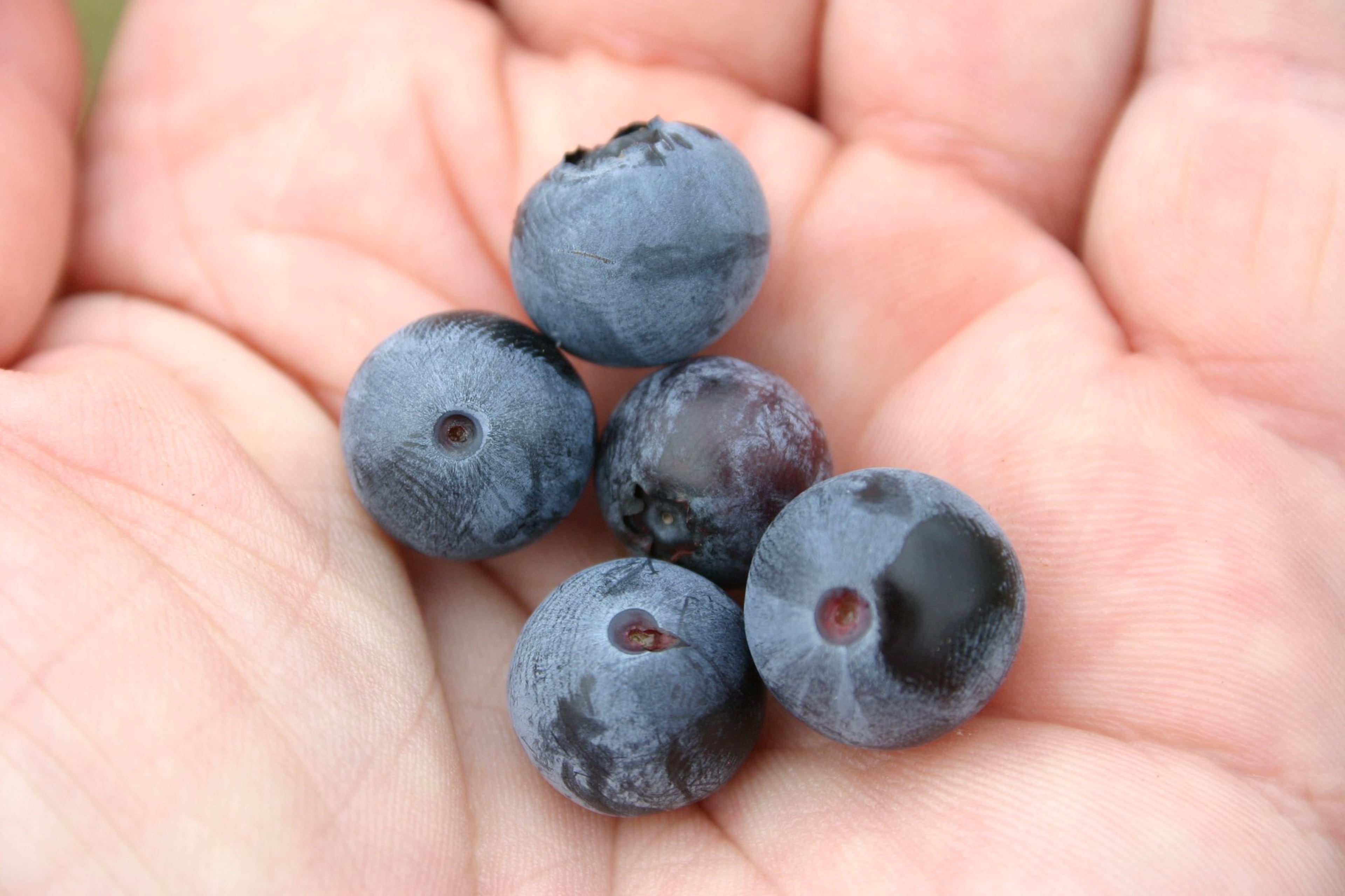Peach problem: Georgia fruits clobbered again

Uncooperative weather has taken a jumbo bite out of the Peach State’s peach crop , a second year of pain for growers of the iconic fruit. And similar hardship appears to have eliminated half Georgia’s more lucrative blueberry yield.
The difficult years have left Atlanta shoppers in the produce aisle facing the prospect of paying more for a limited selection of peaches compared to plentiful years.
It wasn’t supposed to be this way.
Georgia peaches were expected to be on a juicy rebound following last year's troubling freezes and other ill-timed cool weather that destroyed all but about 15 percent of the state's crop. Blueberry farmers also expected a big turnaround for their fruit.
Instead, Georgia peach farmers lost about half their crop this year.
Peach trees need enough time with temperatures below 45 degrees to produce a strong crop. They got that. But late freezes in March ravaged many orchards, particularly hitting varieties normally harvested early in the season.
Late-season peach production has fared better and the quality of the fruit is good, said Jeff Cook, an area peach agent tied to the University of Georgia Cooperative Extension. But there still was plenty of damage.
“Last year, we got punched in the stomach. And when we were bent over, we got punched in the face,” Cook said. “This year we just got punched in the stomach.”
This year’s harvests are larger than those of 2017, said Duke Lane, the president of the Georgia Peach Council and the sales director at his family’s Lane Southern Orchards in Fort Valley, Ga.
Still, it’s the second tough year for peach growers.
There is, though, a little upside to the downside on one farm in central Georgia’s peach country: a potential record for the world’s largest peach.
The bigger-than-softball size fruit caught the eye of Cecilio Herrera Diaz, a picker from Mexico with a visa to work on Al Pearson’s farm in Crawford County.

“The tree had very few peaches on it,” Pearson said, “so it got all the sunlight and all the water and was putting all its energy into that one peach.”
Diaz nearly put the monster fruit in his picking bag, but he held it out. Folks in the office checked online with Guinness World Records. Pearson said the fruit weighed 1.8 pounds. He froze the peach to preserve the evidence.
Pearson’s application for a new world record for largest peach is “under review,” according to a Guinness spokeswoman. If confirmed, the peach apparently would be slightly heavier than the current record set in 2016 by a grower in British Columbia, Canada.
Peach pride is on the line for Georgia, where peaches get more attention than their agricultural value might imply.
In a 2016 financial ranking of the state’s agriculture products, peaches were 33rd — just behind cabbages. The $50 million Georgia peaches typically generate in a year is less than a fifth of the value of local blueberries.
Yet peaches are embedded in the state’s biggest branding. They’re highlighted on Georgia’s driver’s licenses and vehicle plates. Makers of Georgia-filmed movies can qualify for an extra 10 percent tax credit if they embed a Georgia peach logo at the end of a film’s credits. And the new year is celebrated with a symbolic peach drop in downtown Atlanta near Peachtree Street.
South Carolina, where peach growers also suffered a clobbering from weather last year, sparked a minor Twitter face-off earlier this month after the state’s Department of Agriculture tweeted: “We know Georgia gets all the credit but SC actually harvests three times more peaches than GA.”
Georgia responded, in part with video of a boy eating a Georgia peach: “We say ours are 3 X SWEETER. And who could disagree with this smile? #Peaches #PeachState #ItsInTheName #GeorgiaGrown #NaturesFavoriteState”
South Carolina’s retort: “Bless your heart, @GeorgiaGrown”
Meanwhile, Georgia’s blueberry farmers are closing up a season that may turn out to be as bad as what they faced a year ago.
Production last year sank to 28 million pounds, or less than half of what totals had been in more typical years, according to Alma, Ga.-based area extension agent Renee Allen.
This year there was a patchwork of damage after a combination of an early warming followed by frost in parts of the state’s big blueberry region of southeast Georgia.
A final tally isn’t in, but 40 to 50 percent of the state’s crop may have been lost, Allen said. “It’s been two hard years back to back for blueberry growers.”

Weeks of nearly constant rain later in the season limited the ability of farmers to pick fruit that they aren’t supposed to deliver wet to retailers.
Some of the last containers of the season’s Georgia-grown blueberries were on some local store shelves this week.
Shoppers may have noticed some berries with lower quality than they would expect, said Brandon Wade, the president of the Georgia Blueberry Growers Association and a leader at Alma Nursery & Berry Farms.
The troubles created a wider window for competing blueberry growers in North Carolina, New Jersey and even Mexico to supply Georgia stores and build local relationships, Wade said.
If Georgia industry’s challenges continue, he said, “it could have some longer lasting impacts.”


